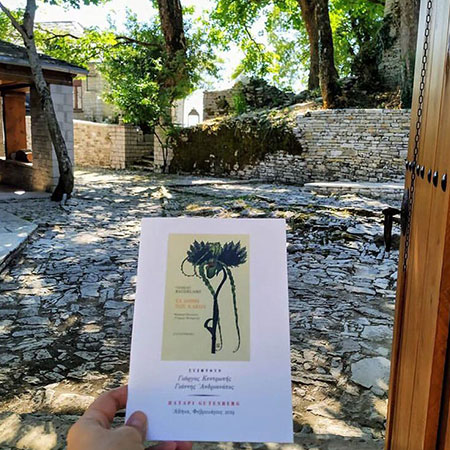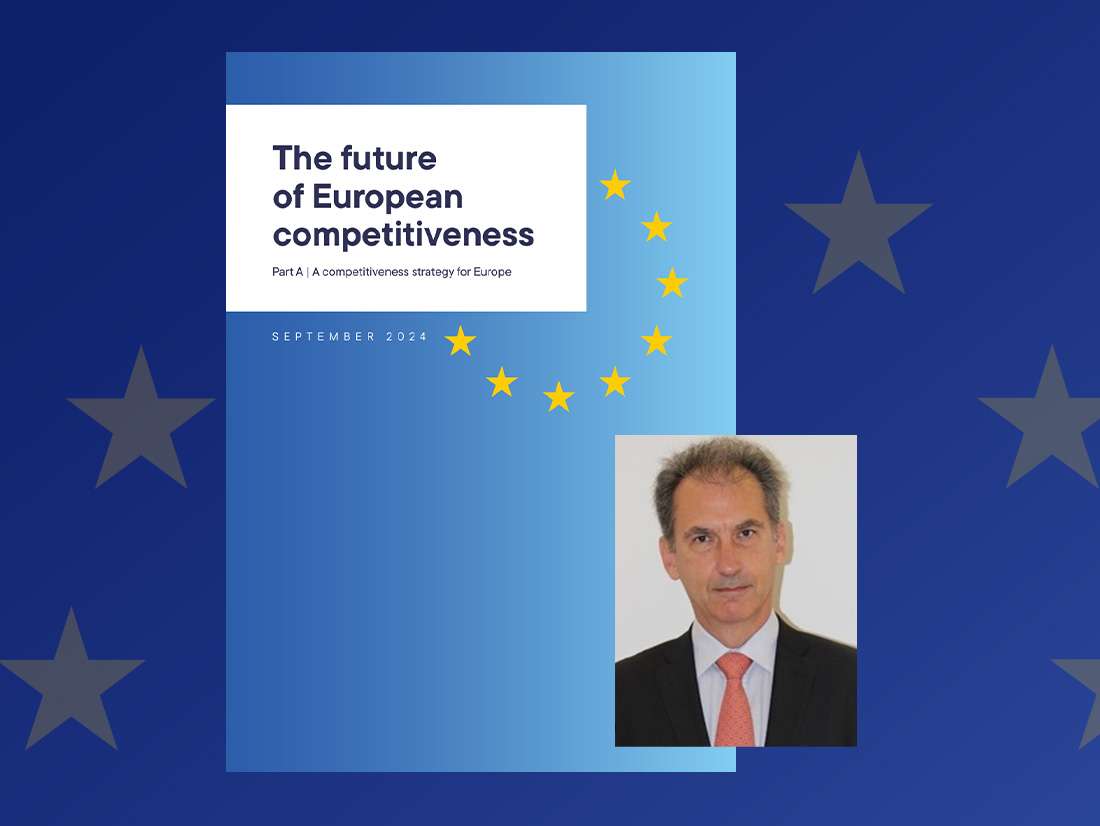ή
Ανάγκη επανεκκίνησης της Ευρωπαϊκής Επιτροπής
Εν τέλει, μετά από μακροχρόνιες διαβουλεύσεις, άσπρος καπνός κυμάτισε πάνω από το Berlaymont την Τρίτη, 17 Σεπτεμβρίου 2024, όταν ανακοινώθηκε η προτεινόμενη σύνθεση του νέου Κολλεγίου των Επιτρόπων. Ένα βήμα πριν το Habemus Commission, αμέσως μετά την επικύρωση των μελών της από το Ευρωπαϊκό Κοινοβούλιο (ΕΚ) και το διορισμό τους από το Ευρωπαϊκό Συμβούλιο (ΕΣ). Η πρώτη διαδικαστική προϋπόθεση τροχοδρομήθηκε ήδη στις 20 Νοεμβρίου 2024 και αναμένεται να ψηφιστεί από την Ολομέλεια του ΕΚ σε λίγες ημέρες. Πήρε δυο μήνες από την ανακοίνωση των προτεινόμενων Επιτρόπων. Όσο για την έγκριση από το ΕΣ, προφανώς πρόκειται για μια απλή τυπικότητα που θα ακολουθήσει άμεσα. Έτσι, η μηχανή της Ευρωπαϊκής Ένωσης είναι σχεδόν έτοιμη να ξαναπάρει μπροστά, με στόχο να ανταποκριθεί στις γεωπολιτικές προκλήσεις της εποχής μας. Ωστόσο, η προσδοκία αυτή προϋποθέτει ότι συνέτρεξαν και συντρέχουν ορισμένες πρόδηλες προϋποθέσεις και μία conditio sine qua non. Ειδικότερα:
-ότι οι επιλεγέντες Επίτροποι έχουν επιλεγεί «βάσει των γενικών τους ικανοτήτων και της προσήλωσής τους στην Ευρωπαϊκή ιδέα» }{άρθρο 17(3β) ΣΕΕ. Που σημαίνει ότι έχουν εμπειρία επιτυχούς διοίκησης και διαχείρισης, ότι διαθέτουν την απαραίτητη τεχνοκρατική γνώση, ώστε να είναι σε θέση να μετάσχουν στη διαμόρφωση των σύνθετων ενωσιακών πολιτικών και ότι ασπάζονται τα ιδεώδη της δήλωσης Schuman της 9 Μαΐου 1959. Με άλλα λόγια, ότι η επιλογή τους δεν είναι προϊόν πολιτικών ή άλλων συμβιβασμών. Ότι οι προτεινόμενοι είναι μεταξύ των άριστων της Ευρώπης, κάτι που τελεί σε αρμονία με το ότι η Επιτροπή βρίσκεται ουσιαστικά στην κορυφή της Ευρωπαϊκής πυραμίδας・
-ότι, κατ’επέκταση, οι προτεινόμενοι Επίτροποι, επιλεγέντες «μεταξύ προσωπικοτήτων που παρέχουν πλήρη εχέγγυα ανεξαρτησίας», οφείλουν ν’ασκούν τα καθήκοντά τους «με πλήρη ανεξαρτησία», και «δεν επιζητούν ούτε δέχονται υποδείξεις από κυβερνήσεις, θεσμικά όργανα, λοιπά όργανα ή οργανισμούς» {άρθρο 17(3β) ΣΕΕ}. Η απολυτότητα της διατύπωσης αυτής επιβεβαιώνεται στο άρθρο 245 ΣΛΕΕ, κατά το οποίο «Τα κράτη μέλη σέβονται την ανεξαρτησία (των μελών της Επιτροπής) και δεν επιδιώκουν να τα επηρεάζουν κατά την εκτέλεση του έργου τους». Ενδιαφέρον έχει ο χαρακτηρισμός «πλήρη εχέγγυα». Σημειωτέον ότι η γενικότητα των διατάξεων αυτών περιλαμβάνει και τον Πρόεδρο της Επιτροπής, πολύ περισσότερο μάλιστα, αφού ο/η Πρόεδρος «καθορίζει τους προσανατολισμούς στο πλαίσιο των οποίων η Επιτροπή ασκεί τα καθήκοντά της» {άρθρο 17(6) ΣΕΕ}・
-ότι οι επιλεγέντες Επίτροποι δεσμεύονται να ολοκληρώσουν την 5ετή θητεία τους {άρθρο 17(3α) ΣΕΕ} και να μην αξιοποιούν τη θεσμική τους θέση ως εφαλτήριο για άλλες θέσεις κατά τη διάρκειά της, ή να επιστρέφουν σε αυτήν σε περίπτωση που η προσπάθειά τους αποδεικνύεται ανεπιτυχής, ως εάν η «Επιτροπία» να είναι επιλογή δεύτερης διαλογής. Η δέσμευση αυτή δεν περιλαμβάνεται ρητά στις Συνθήκες, προκύπτει όμως από το πνεύμα τους, καθόσον η ευρωπαϊκή ιδέα είναι ο ύπατος στόχος που καλούνται να εκπληρώσουν, με πλήρες ασυμβίβαστο ως προς οτιδήποτε άλλο κατά τη διάρκεια των 5 ετών διορισμού τους (άρθρο 245β ΣΛΕΕ). Πρέπει οι Επίτροποι να είναι ψυχή τε και σώματι αφιερωμένοι στην αποστολή τους, χωρίς να λοξοκοιτούν καιροσκοπικά για την πολιτική τους ή άλλη ανέλιξη. Είναι μια θυσία που συμπορεύεται με την ευρωπαϊκή ιδέα・
-ότι η κατανομή των χαρτοφυλακίων είναι ορθολογική, ratione materiae, ώστε να εξυπηρετεί τον καλύτερο συντονισμό των υπηρεσιών, και δεν είναι αποκύημα διάφορων πολιτικών ή προσωπικών συμβιβασμών, καθιστώντας το οργανόγραμμα ευκαιριακό σε βάρος της διαφάνειας και της αποτελεσματικότητας. Αυτές είναι οι ελάχιστες προϋποθέσεις για όσους αισίως φθάνουν στον 13ο όροφο του Berlaymont, κατακλείδα μιας καριέρας και συνάμα διαβατήριο για τη θεραπεία του κοινού-υπερεθνικού συμφέροντος. Εφόσον οι προϋποθέσεις αυτές συντρέχουν, οι οιωνοί είναι καλοί, αν και υπό μια condition sine qua non: ότι ο μηχανισμός υποστήριξης του Κολλεγίου των Επιτρόπων (οι υπηρεσίες της Επιτροπής) είναι αντίστοιχος των απαιτήσεων της αποστολής του. Είναι? Μια μακροσκοπική θεώρηση του ευρωπαϊκού εγχειρήματος δείχνει ξεκάθαρα μια καμπύλη σε ανιούσα μέχρι και την Επιτροπή Santer. Ακολουθώντας τη μέχρι τότε «συνταγή», η Επιτροπή αυτή ολοκλήρωσε το όραμα της μεγάλης Εσωτερικής Αγοράς των προκατόχων της, και ιδίως της Επιτροπής Delors, προχώρησε σε μια ιστορική διεύρυνση και ξεκίνησε την οικονομική και νομισματική ένωση. Ποια ήταν η συνταγή αυτή? Αφενός η συστημική επεξεργασία κάθε νέας πολιτικής πρότασης και αφετέρου η αρχή της συναίνεσης.
Η συστημική προσέγγιση ήταν το επίτευγμα των υπηρεσιών, αρχής γενομένης από τον πρώτο γενικό γραμματέα Emile Noël με συνεχιστή τον David Williamson. Κάθε πρόταση γενικής δ/νσης (αυτόβουλη ή όχι) έπρεπε να τύχει της έγκρισης ή να λάβει υπόψη της τις παρατηρήσεις των άλλων γενικών δ/νσεων σε μια διαδικασία συνεργασίας, στην οποία θα προσιδίαζε περισσότερο ο χαρακτηρισμός του ευγενούς ανταγωνισμού. Με τον τρόπο αυτό, επιτυγχανόταν η σύγχρονη πλέον ανάγκη κάθε πολιτική πρόταση να λαμβάνει υπόψη της τις επιπτώσεις της στις άλλες και vice versa. Και για να γίνει αυτό εφικτό, απαιτούταν ένα υπεύθυνο προσωπικό υψηλών προδιαγραφών με το αίσθημα της συμμετοχής στο ευρωπαϊκό γίγνεσθαι. Μια γραφειοκρατία, ικανή να προτείνει εξ ίσου νόμιμες εναλλακτικές λύσεις στο πολιτικό επίπεδο.
Η αρχή της συναίνεσης αφορά στο Κολλέγιο των Επιτρόπων: οι προτάσεις των υπηρεσιών για τις οποίες διατυπώνονται επιφυλάξεις, πρέπει να συζητιόνται από όλα τα μέλη του Κολλεγίου, επί ίσοις όροις, μέχρι να επιτευχθεί μεταξύ τους συμφωνία. Οι κάποιες ελάχιστες εξαιρέσεις επιβεβαιώνουν την αξία της αρχής αυτής, που συνίσταται στη διατήρηση της συνοχής της Επιτροπής: εν τη ενώσει η ισχύς. Πλέον, η συνταγή αυτή έχει εγκαταλειφθεί. Οι εντολές έρχονται από πάνω, οι υπηρεσίες οφείλουν να εκτελούν, οι Επίτροποι και οι Γενικοί Διευθυντές έχουν ήσσονα ρόλο, την υπευθυνότητα έχει αντικαταστήσει η ευθυνοφοβία σε όλα τα επίπεδα. Αποτέλεσμα? Μια κακή και αργή γραφειοκρατία εν τη γενέσει της. Πριν ολοκληρωθεί η θητεία της Επιτροπής αυτής, η κουλτούρα αυτή θα έχει ανεπιστρεπτί παγιωθεί. Και αυτό θα επιφέρει διαλυτικές τάσεις στο εσωτερικό της Ευρωπαϊκής Ένωσης και την υστέρηση της στη διεθνή σκηνή. Δυοίν θάτερον: είτε άμεση αποκατάσταση της Επιτροπής σε ένα πρωταγωνιστικό ρόλο μεταξύ των Θεσμών, όπου ο Πρόεδρός της, απλά primus inter pares μεταξύ των Επιτρόπων, θα εκπροσωπεί την Ένωση erga omnes, χωρίς να συνοδεύεται από τους Προέδρους του Ευρωπαϊκού Κοινοβουλίου και του Ευρωπαϊκού Συμβουλίου, με τη νομιμοποίηση που θα του προσδίδουν οι ανεξάρτητες υπηρεσίες της Επιτροπής και τα υπεύθυνα Μέλη της, για την υλοποίηση των προσανατολισμών του Ευρωπαϊκού Συμβουλίου, υπό τον πολιτικό έλεγχο του Ευρωπαϊκού Κοινοβουλίου και τον τελικό έλεγχο του Δικαστηρίου της Ευρωπαϊκής Ένωσης・είτε πλήρης αναθεώρηση των Θεσμών και προσαρμογή τους στις νέες απαιτήσεις των καιρών. Υποστηρίζεται ότι η Επιτροπή διατηρεί ακόμη τη ζωτικότητά της για να ξεκινήσει ένα ανανεωμένο ευρωπαϊκό σχέδιο, σοφότερη από τις επιτεύγματα και τις αποτυχίες της, δεν υπάρχει όμως ούτε μέρα για χάσιμο. Η επάνοδος στις δοκιμασμένες συνταγές επιτυχίας είναι επιτακτική, εάν πράγματι υπάρχει πολιτική βούληση η Έκθεση Draghi να παράξει κάποιους από τους χυμώδεις καρπούς της.
Σπύρος Α. Παππάς
Δικηγόρος
Διετέλεσε Γενικός Διευθυντής της Ευρωπαϊκής Επιτροπής, Γενικός Διευθυντής του Ευρωπαϊκού Ινστιτούτου Δημόσιας Διοίκησης και Καθηγητής Ευρωπαϊκού Δικαίου (Maastricht), Γενικός Γραμματέας ΕΚΔΔ, Δικαστής ΣτΕ.
 7°C
7°C

